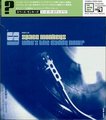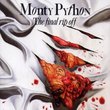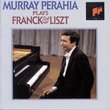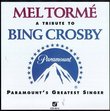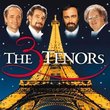| All Artists: Magda Olivero, Richard Tucker, Vicente Sardinero Title: Puccini: Manon Lescaut / Olivero, Tucker, Sardinero Members Wishing: 1 Total Copies: 0 Label: Opera D'oro Release Date: 6/15/1999 Genre: Classical Style: Opera & Classical Vocal Number of Discs: 2 SwapaCD Credits: 2 UPC: 723723562920 |
Search - Magda Olivero, Richard Tucker, Vicente Sardinero :: Puccini: Manon Lescaut / Olivero, Tucker, Sardinero
 | Magda Olivero, Richard Tucker, Vicente Sardinero Puccini: Manon Lescaut / Olivero, Tucker, Sardinero Genre: Classical
|
Larger Image |
CD DetailsSimilar CDsSimilarly Requested CDs
|
CD ReviewsLesson: how to act with the voice Julian Grant | London, Beijing, New York | 09/12/2000 (3 out of 5 stars) "This Opera d'oro release is worth having. The recording quality is congested and at times a little too forward, but it's worth hearing for the two leads: Olivero and Tucker. Yes, they're both past their prime, Tucker a little more obviously so, but he gives a performance with bags of passion and he and Olivero really strike sparks. If you have never heard Magda Olivero, remedy this immediately. No one (not even that Greek lady - what's her name??) has such a range of colour in her voice, or such command of verbal pointing. That she was over 60 when she sang this live performance, and in the opening scene has perhaps not quite the light timbre for an ingenue teenager on her way to a convent, is beside the point; her artistry wins out, and she is devastating in the last act aria 'Sola ,perduta, abbandonata'. She made almost no studio recordings, so a lot of live ones are floating around, let's hope Opera d'oro issue her in her signature verismo repertory: Alfano's 'Risurezzione, 'Adriana Lecouvreur' and Zandonai's 'Francesca da Rimini'." An amazing recording + Facts about Callas Emma de Soleil | On a holiday In Ibiza, then back to the UK for stu | 02/28/2004 (5 out of 5 stars) "I wonder if the person claiming those things on Olivero&Callas truly heard both of them live. Because whoever saw Callas live was mesmerized by her restraint and her natural acting, no melodrama at all. Callas once said "Drama! Not Melodrama!" And that she performed on stage. If anyone is the queen of verismo, this art of melodrama it is OLIVERO who sobs, sighs and sometimes makes very naturalistic noises you'll NEVER hear from Callas. But Olivero is AMAZING in anything verismo and this Manon with Richard Tucker is sublime." The only complete "Manon Lescaut" worth having madamemusico | Cincinnati, Ohio USA | 10/16/2003 (5 out of 5 stars) "I have been listening to opera, and opera recordings, for four decades now, and I have never heard another performance of "Manon Lescaut" to match this one (though the 1949 Met broadcast with the underrated Dorothy Kirsten and Jussi Bjorling in shocking passionate form comes close). As one Italian critic so aptly put it, "Olivero does not sing a role, she interprets a life." If you want greater technical perfection, listen to Magda's early Cetra recording of "In quelle trine morbide," but except for this aria and a few bits in the first act where she is a shade insecure, you will never hear any soprano "build" the role dramatically as she does. I was fortunate enough to hear both Olivero and Callas in person, and I tell you what, folks, I preferred Olivero. Her singing was not merely more techincally secure, but she was an actress "from inside the role" the same way Chaliapin was, whereas Callas was simply melodramatic....great in her own way, mind you, but not the same thing.Richard Tucker was in the last phase of his career, which started around 1967, which means that he sings more cleanly here than at any time since the early '50s (when he got away from the continent style forced on him by Toscanini and began sobbing and glotting). He was suffering from a cold at the time, and in fact cancelled the second performance of this opera in Caracas, and of course his voice was never really as "phonogenic" as Bjorling's or Corelli's with their brighter timbres, but he sings Des Grieux with just the right amount of passion and, as I say, his singing at this time was both highly musical and technically secure. A worthy tribute to a fine tenor who sadly made few great recordings.Vicente Sardinero is superb as Lescaut and, though Veltri does not conduct with the astounding cohesion and symphonic sense of development revealed by Toscanini in his Act 3 from the La Scala reopening concert, he still conducts as well or better than Levine in the same opera and many of his Italian peers.I highly recommend this as the best overall "Manon Lescaut" on records. It is a finer work than "Adriana" or "Fedora," the other two complete Olivero recordings that are floating around these days. But how I wish Magda had recorded a complete "Traviata"!"
|

 Track Listings (15) - Disc #1
Track Listings (15) - Disc #1